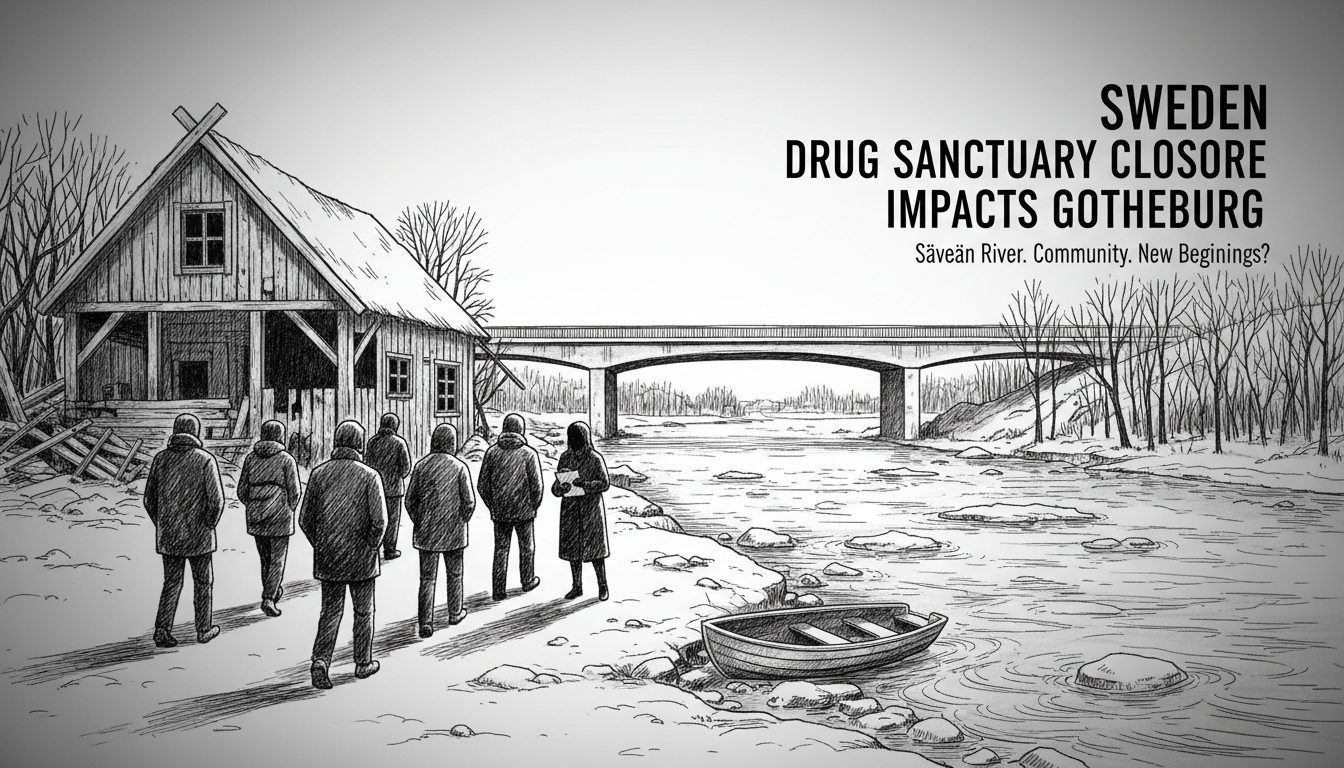Gothenburg authorities shut down a controversial drug sanctuary at Säveån river. The area in Gamlestaden faced serious criminal activity. Police reported drug dealing, attempted murders, and sexual assaults. Local officials decided they had enough and closed the facility.
Social services now work with former sanctuary users. Many individuals previously gathered at the riverside location. One man known as LP says his life improved significantly. He feels he's in a much better place now.
Sanela Eminovic from social services sees potential in these individuals. She notes they possess resources and abilities. The closure forced a reevaluation of support systems. Gothenburg's approach reflects Sweden's broader drug policy challenges.
Nordic countries typically combine strict enforcement with rehabilitation. Sweden maintains zero-tolerance drug laws while funding treatment programs. This dual approach creates constant tension between punishment and support. The Säveån situation shows how local communities manage this balance.
International observers watch Swedish drug policies closely. The country's model differs from Portugal's decriminalization or Dutch coffee shops. Sweden prioritizes complete drug-free societies. This creates unique challenges in urban areas like Gothenburg.
The sanctuary closure displaced approximately 50 regular visitors. Some entered treatment programs while others disappeared from official view. Local residents report mixed feelings about the change. Many appreciate reduced public drug use but worry about displaced problems.
Gothenburg social workers now focus on individual case management. They connect people with housing, healthcare, and employment services. This personalized approach shows early promise but requires more resources. Municipal budgets face pressure from multiple social needs.
Sweden's drug policy remains politically popular despite international criticism. The country maintains low drug use rates compared to European neighbors. Yet urban areas continue struggling with visible drug scenes. The Säveån closure represents another chapter in this ongoing challenge.
What happens next for Gothenburg's drug policy? City officials monitor whether problems simply move elsewhere. They also track outcomes for former sanctuary users. Success will require sustained effort and adequate funding. The situation demonstrates how cities worldwide balance public order and compassion.

